Applied Chemistry & Chemical Engineering Laboratory (LCAGC)
LCAGC Laboratory
Our teams
Materials Elaboration and Applications.
Team leader:Pr CHAOUCHI Ahcene 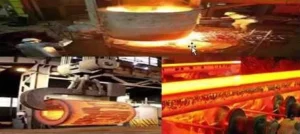
Domain:
Keyword:
Description of the team's research theme:
The development of nanomaterials today involves a search for compromises between different properties, so as not to degrade existing properties while improving others. To achieve this, we strongly recommend a good understanding of the synthesis processes and mechanisms involved in nano-structure formation. Achieving and improving the spectrum of properties of existing materials requires a good command of their elaboration and characterization. The aim is to develop elaboration processes enabling the manufacture of materials formed by homogeneous and stable nanoscale particles with the desired properties, and for which the structure can be controlled on the nanoscale. The reduction in crystallite size to the nanoscale confers on nanomaterials optical, photovoltaic, photocatalytic, piezoelectric, dielectric electrical and magnetic properties that are modified and often improved compared to those of materials with conventional grain sizes. Today, nanotechnology is opening up new prospects for obtaining nanometric particles, new compositions, nano-grain materials or even oxide-polymer composites that can have multifunctional applications. The development of these materials enables us to achieve major productivity gains and open up new prospects by accessing innovative technology. It is in this context that the aim of this project is to synthesize oxide nanoparticles. Secondly, to study the characteristics of these nanoparticles and their behavior during use in various fields of application.
Complete list of permanent team members:
| First & last name | Last diploma | Grade | Reporting structure |
|---|---|---|---|
| AMAOUZ née Lamrani Nouara, | State Doc. | MCA | U. Tizi Ouzou |
| ZOBIRI Rachida | PhD | MCB | U. Tizi Ouzou |
| ZIDI Naima | PhD | MCB | U. Tizi Ouzou |
Complete list of doctoral students in the team:
- KENNOUR Sadia
- SAIDI Malika
- CHERIFI Yacine
Surface Reactivity Team
Team leader: Pr Smain HOCINE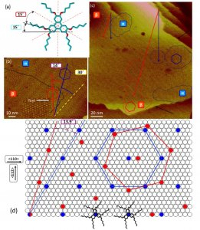
Domain:
Keyword:
Description of the team's research theme:
Surface Reactivity is responsible for the synthesis and/or functionalization of inorganic materials and the
Its research activities focus on the functionalization of light alkanes, the activation of C-H bonds in hydrocarbons and the valorization of carbon dioxide.
With regard to the catalytic hydrogenation ofCO2, research projects focus on the synthesis of catalytic nanomaterials using the polyol process (new methods for the preparation of supports and active phases), the conversion ofCO2 into platform molecules such as methanol CH3OHand dimethyl ether CH3OCH3, and the upgrading ofCO2 as a carbon source into energy-rich molecules such as methane, ethane and liquid hydrocarbons on oxide nanoparticles.
In the field of light alkane functionalization and hydrocarbon C-H bond activation, research covers the advanced synthesis of new bifunctional catalytic materials with both acid-base and redox properties, and the conversion of alkanes and/or hydrocarbons to produce value-added molecules.
Themes developed :
- Catalyst synthesis and characterization
- Functionalization of catalytic materials
- Carbon dioxide recovery
- Functionalization of light alkanes
- Upgrading hydrocarbons
- Catalytic reduction of COx and NOx
Complete list of permanent team members:
BENLOUNES Ouarda, Senior Lecturer class A at UMMTO
MANSOURI Sadia, Senior lecturer class B at the University of Bouira
EL NADJAR Widad, Senior Lecturer class B at the University of Boumerdes
CHEKNOUN Salem, Assistant Professor Class A at the University of Bejaia
Complete list of doctoral students in the team:
- HAMMOUTENE Baya
- ALLAM Djaouida
- KRIM Karima
Adding value to olive by-products
Team leader: Pr ELIAS Abdelhamid 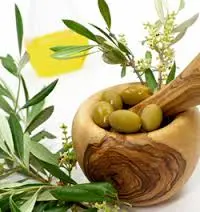
Domain:
Keyword:
Description of the team's research theme:
The olive by-products valorization team (C1000203) is a research team headed by Professor KADI Hocine from 2000 to 2016. It is currently under the responsibility of Professor ELIAS Abdelhamid. This research team has carried out several CNEPRU and PNR research projects, and has a considerable number of international publications to its credit, as well as doctoral, magisterial and master's degree defenses.
The arboriculture sector occupies an important place in the national agricultural development program. Among the most common fruit crops, olives and citrus fruits are the most abundant.
The processing of olives into oil and citrus fruits into juice and other preserves generates by-products that are harmful to the environment if not treated and/or recycled.
The aim of the team's research projects is therefore to process and recover waste natural substances that can generate economic profitability, with a dual objective:
- separating and recovering the chemical constituents of this waste that are of interest to the food and health sectors.
- reduce their negative impact on the environment.
- establish useful links between the three main wastes to be studied (olive by-products, citrus peel and pomegranate peel) to recover chemical constituents of interest or improve their quality.
To carry out its studies, the olive by-product valorization team calls on the services of a team of experts:
- several unitary chemical engineering operations (separation methods), such as liquid-liquid and liquid-solid extraction operations, various distillation techniques, adsorption, precipitation, coagulation-flocculation, etc.
- the development of treatment procedures using: oxidation, ultrasound, microwaves, gamma radiation, etc.
- development and preparation (functionalization, modification, activation, extraction, etc.) of materials and substances used in separation methods, such as adsorbents (bentonites, cellulose, resins, activated carbon....), plant extracts (pectins, etc.), precipitating agents such as hydroxyapatite, etc.
- modeling and optimization using experimental research methodology, which play a key role in planning experiments and processing the results obtained.
Complete list of permanent team members:
- ELIAS Abdelhamid, Professor (Team Leader)
- Mr KADI Hocine, Professor
- Mr MOUSSAOUI Ramdane, Professor
- Ms IBOUKHOULEF (née BEKDA) Hamida, Senior Lecturer Class B
Complete list of doctoral students in the team:
- Miss SEBAOUI Ouiza
- Ms YAHIAOUI Nouara
- Miss CHAOUADI Hiba
- Mrs ARABI, née HOCINE Malika
- Miss KHIRECHE Soraya
- Ms HATEM Rokia
- Ms BENNACER Sonia
Waste treatment and recovery.
Team leader: Pr MEZIANE Smail 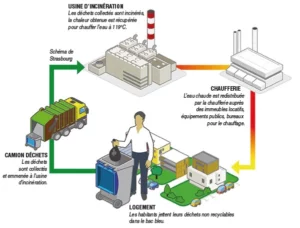
Domain:
Keyword:
Description of the team's research theme:
The treatment and recovery of wastewater and waste from agricultural and agro-industrial activities are important objectives for industrialized countries, and especially for developing countries. They represent a real challenge for limiting their impact, which has been steadily increasing in recent years, on the environment and on human health. The theme we wish to develop is part of a sustainable development approach, at both environmental, social and economic levels. It focuses on the development and characterization of new biosorbents and hybrid nanomaterials based on metal oxides, using a range of physico-chemical analysis techniques (UV, IR, BET, DRX, pHpzc, etc.), with a view to their application in the treatment of water contaminated by organic and inorganic micro-pollutants. Experimental design methodology will be used to model and optimize products and production processes.
Complete list of permanent team members:
- BOZETINE Hakima, Senior Lecturer Class B
- AMARNI Fatiha, Master Assistant-Class B
Complete list of doctoral students in the team:
- AZIRI Sabrina
- BERKANE Nabila
Catalysis
Team manager: SALLEM Djamila 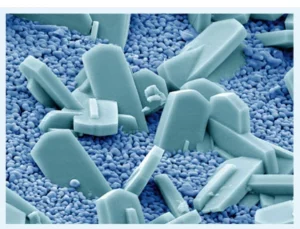
Domain:
Keyword:
Description of the team's research theme:
Team 6 "Catalysis" focuses on the synthesis of high-performance catalysts for the conversion of methane into synthesis gas (CO andH2). The latter is used in the manufacture of oxygenated products, heavy hydrocarbons, alcohols....etc . The methane conversion reaction can be carried out without a catalyst and at very high temperatures, but for the sake of energy savings, it is preferable to use a catalyst, which enables working temperatures to be lowered. So the choice of catalyst is crucial. Catalytic systems are generally based on noble metals and/or transition metals. Given the cost of noble metals, it is more favorable for industrial applications to develop transition metal-based catalysts (availability, lower cost and high catalytic activity). However, the major problem is rapid catalyst deactivation. Research into the causes of deactivation of these catalytic systems has shown that poor dispersion of the active phase is one of the main reasons for deactivation. Several solutions have been proposed to limit carbon formation and improve catalyst stability. The dispersion of the active phase can be increased by inserting it into a well-defined structure, such as perovskite, spinel or hexaaluminates, and distributing it evenly. These structures enable metal nanoparticles to be obtained after oxide reduction. A good dispersion of the oxide on a support, in particular a mesoporous support, and the addition of low levels of promoter can increase the specific surface area, oxygen mobility and reducibility of the transition metal, and hence the catalytic activity of the solids.
Complete list of permanent team members:
- Team leader SALLEM Djamila
- Dekkar Sadia
- Ikkour Kahina
- Touati Djegdjiga
- Halaouane Mourad
- Bakri Sabiha
Analytical chemistry and bioinorganics
Team leader: Dr. KADOUCHE Slimane 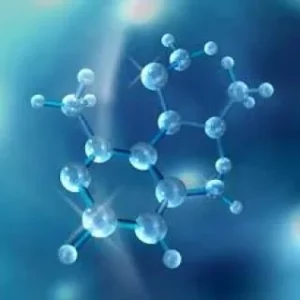
Domain:
Keyword:
Description of the team's research theme:
Today, materials of natural origin are an acceptable alternative to materials derived from fossil resources. Particularly if they are locally abundant. Over the last twenty years, numerous studies, mainly in the laboratory, have been carried out to replace activated carbon and resins with other so-called "non-conventional" adsorbent materials, such as agricultural waste, which is the subject of this study. The presence of certain chemical functions on the surface of biomaterials demonstrates their natural adsorbent potential for a wide range of organic and inorganic substances. The performance of some materials is such that they can compete with activated carbons. However, the use of certain biosorbents is fraught with technical difficulties that need to be emphasized. In particular, wood by-products (bark, sawdust) not only color the water to be treated, but also have a high swelling and water retention capacity, which reduces the sorbent power of these materials. CuO is a P-type semiconductor with a small gap and very interesting properties. The unique physico-chemical properties of CuO are directly related to its morphology, dimensions, specific surface area and often to the way it is produced. Thin-film CuO and nanostructures have been developed using a variety of techniques, with applications such as supercapacitors, gas detectors, magnetic data storage, field-effect transistors, solar cells, biosensors, photo-catalysts for wastewater treatment, etc. We propose to physically and chemically characterize materials based on raw materials and metal oxides, in order to qualitatively and quantitatively improve their ability to bind micropollutants in aqueous solution. Various wastewater treatment processes produce sludge, which is a hot topic when it comes to agricultural reuse.
Complete list of permanent team members:
- BELAICHA Nacera, Assistant Professor Class A at UMMTO
- Salhi Ahmed, Assistant Professor class A at UMMTO
Complete list of doctoral students in the team:
- Ms OUBAGHA Noura
- Ms BOUHADJRA Kahina
- Mr GRABI Hocine
Matériaux Catalyse Environnement.
Team leader: Dr Mazari Tasadit
